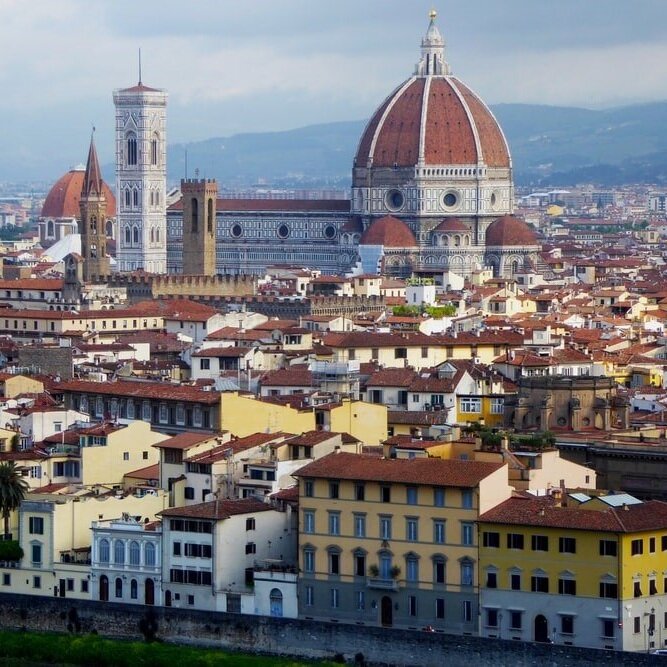Through Lausanne 2021, we were all drawn into a broad, multi-ethnic, multi-lingual, multi-national ‘communion of saints’ blanketing Europe and far beyond. The four days of online conversations, video reports, exchanges through chat boxes, interactive seminars and bible expositions have created a landmark event which will impact the evangelical landscape of Europe for decades to come”
Read MoreIn this article, we share our assessment on the ability of Lausanne Europe 20/21 to include the voice and perspectives of younger leaders. Afterwards we will share our perspective on the role of younger leaders in the mission of the Church.
Read MoreWe do not want to hear women’s perspectives because politicians and bureaucrats think it is a good idea. We think it’s a good idea because God made men and women equal and equally gifted.
Read MoreJust under 1/3 of all participants at the Lausanne 20/21 gathering were from Central and Eastern Europe. As the percentage of born-again Christians across Eastern Europe is much smaller than in Western or Northern European countries, this shows that organising committee put effort to mobilize participants from Eastern Europe.
Read MoreThe organisers of the Lausanne Europe Conference 20/21 had an intentional focus on including diaspora voices from the early days of its organisation. Several key diaspora mission leaders were engaged in the process. In the end, the 20 per cent target proved to be too high, That we got 9 per cent diaspora engagement is definitely a great achievement.
Read MoreWhat are the missiological implications emerging from the presence of hundreds of thousands of Christians from other parts of the world in many European cities?
Read MoreWe are delighted that Harvey Kwiyani is joining the Vista editorial team. Originally from Malawi, Harvey is CEO of Global Connections in the UK. His latest book is Multicultural Kingdom, Ethnic Diversity Mission and the Church. Read an interview with Harvey here…
Read MoreIn his final article as co-editor for Vista, Darrell Jackson looks back at his research in mapping migration across the Church in Europe over the last 18 years.
Read MoreThe language used to describe mission has changed over the last 200 years, but does it accurately reflect the situation in Europe?
Read MoreThere are fifteen issues and trends which are highlighted in Europe 2021: A Missiological Report but here are a couple to whet your appetite.
Read MoreEurope 2021 - A Missiological Report by Jim Memory identifies the crucial issues and trends shaping the context for Christian mission in Europe today. alongside how Covid-19 has impacted these trends.
Download the report today
Read MoreReaching Europe with the Gospel requires us to face up to an uncomfortable truth: Europe is still being secularised. Understanding the processes of secularisation is a vital part of discerning how Europe might be re-evangelised. This issue of Vista explores how large scale surveys such as the European Values survey help us do just that,
Read MoreReligious belief and practice are complex phenomenon. Alongside this, the process of secularisation in Europe has been a subject of study and debate among sociologists for many years. our review of the latest European Values survey data suggests that secularisation in Europe is continuing but that each country may well have its own trajectory.
Read MoreDr David Voas is Chair of the European Values Survey Theory Group, who are responsible for developing the questionnaires, and a member of their Executive Committee. We spoke to Dr Voas about his work with EVS and asked him to reflect on our analysis of the 2017-2020 data.
Read MoreThere are many factors affecting the outcomes of surveys such as the European Values Survey, European Social Studies (ESS) and the Pew Forum Research Reports. In this article we look at some of these factors, to help s understand the nuances of the religious landscape in Europe.
Read MoreAre migrants in Europe likely to be more secular or more religious than European-born nationals? Most studies tend to suggest that migrants are generally more religious than national-born Europeans and that for some at least, the fact of relocating to, or being resettled in, a new country can be a catalyst in a change of religious affiliation and identity
Read MoreDespite a plethora of material, aimed at helping churches and individual believers to respond to the pandemic crisis, there appears to be little focus, if any, on the theological – and missiological – implications that people can no longer ignore the possibility of death.
Read MoreWhether Covid-19 will lead to a resurgence of faith in Europe will be seen in years to come but, for now, it has forced churches to innovate in their responses to grief and death and share the hope in Christ beyond the walls of the church.
Read MoreMourning is an expression of love, it is the other side of love. We cry because we love. And the greater the love, the deeper the pain. Mourning is the price paid in pain for the end of a dear and valuable relationship.
Read MoreIt is a particular feature of our work that we are with people when their world is turned upside down and everything they thought they knew has been stripped away. The key is being there.
Read More




















